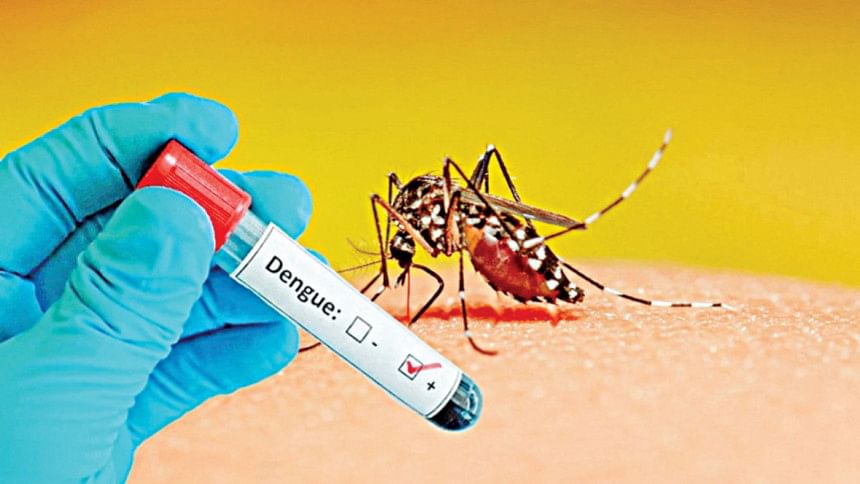Dengue vaccine trial shows promising results in Bangladesh

A dengue vaccine, of which a clinical trial has been conducted in Bangladesh, is showing promising results in fighting against the viral disease.
Researchers from icddr,b, and the Larner College of Medicine at the University of Vermont (UVM), USA are the first to study the promising dengue vaccine in Bangladesh.
Their work -- evaluation of the single-dose tetravalent dengue vaccine candidate TV005 -- demonstrated safety and immune responsiveness in children and adults.
The result of the clinical trial along with the study was published in the journal -- The Lancet Infectious Diseases.
Currently, fluid management and symptom control are the only available treatments for dengue.
Investigators at the icddr,b and UVM's Vaccine Testing Centre (VTC) had begun their trial titled "Dengue in Dhaka Initiative (DIDI)" in 2015.
The clinical trials and laboratory assay infrastructure as well as a preliminary dengue prevalence study were established and performed at the icddr,b in 2015.
In the trial, almost 200 volunteers aged between 1 and 49 years received the TV005 vaccine or placebo over the course of three years, beginning in 2016.
"TV005 was shown to be well-tolerated. Antibodies to all four dengue serotypes were found in most volunteers after vaccination; individuals who had been infected previously with dengue had higher antibody counts," the study found.
It said this data moves the TV005 dengue vaccine closer to widespread use in endemic populations while garnering support for ongoing large, phase III efficacy trials.
The UVM VTC has been evaluating dengue vaccines developed by the US National Institutes of Health (NIH) since 2009.
"The development of an effective and tetravalent dengue vaccine is a very high priority for the large population of Bangladesh, which is now seeing severe dengue outbreaks," said Rashidul Haque, a senior scientist at icddr,b.
He hoped that their work will accelerate the development of dengue vaccines for Bangladesh.
The third phase trial of the vaccine have already started in India and some other countries.
Mohammed Shafiul Alam, a scientist who participated in the study, said that it may take at least three to five years for the vaccine to hit the market if everything goes smoothly.
"The vaccine was put on trial in 42 phases in different countries. It is a great prospect for Bangladesh, which is obviously a good news for the country," he said.

 For all latest news, follow The Daily Star's Google News channel.
For all latest news, follow The Daily Star's Google News channel. 


Comments